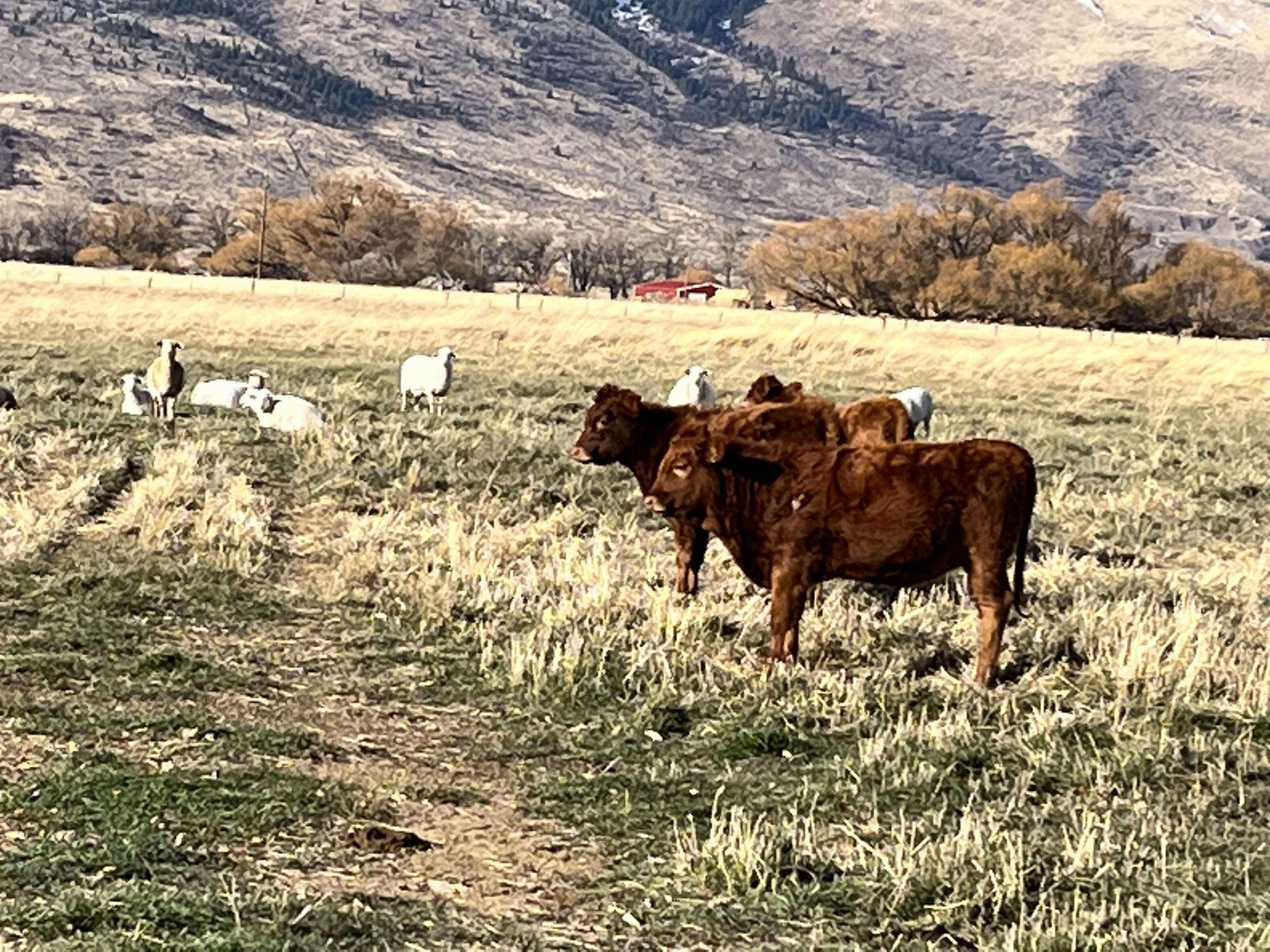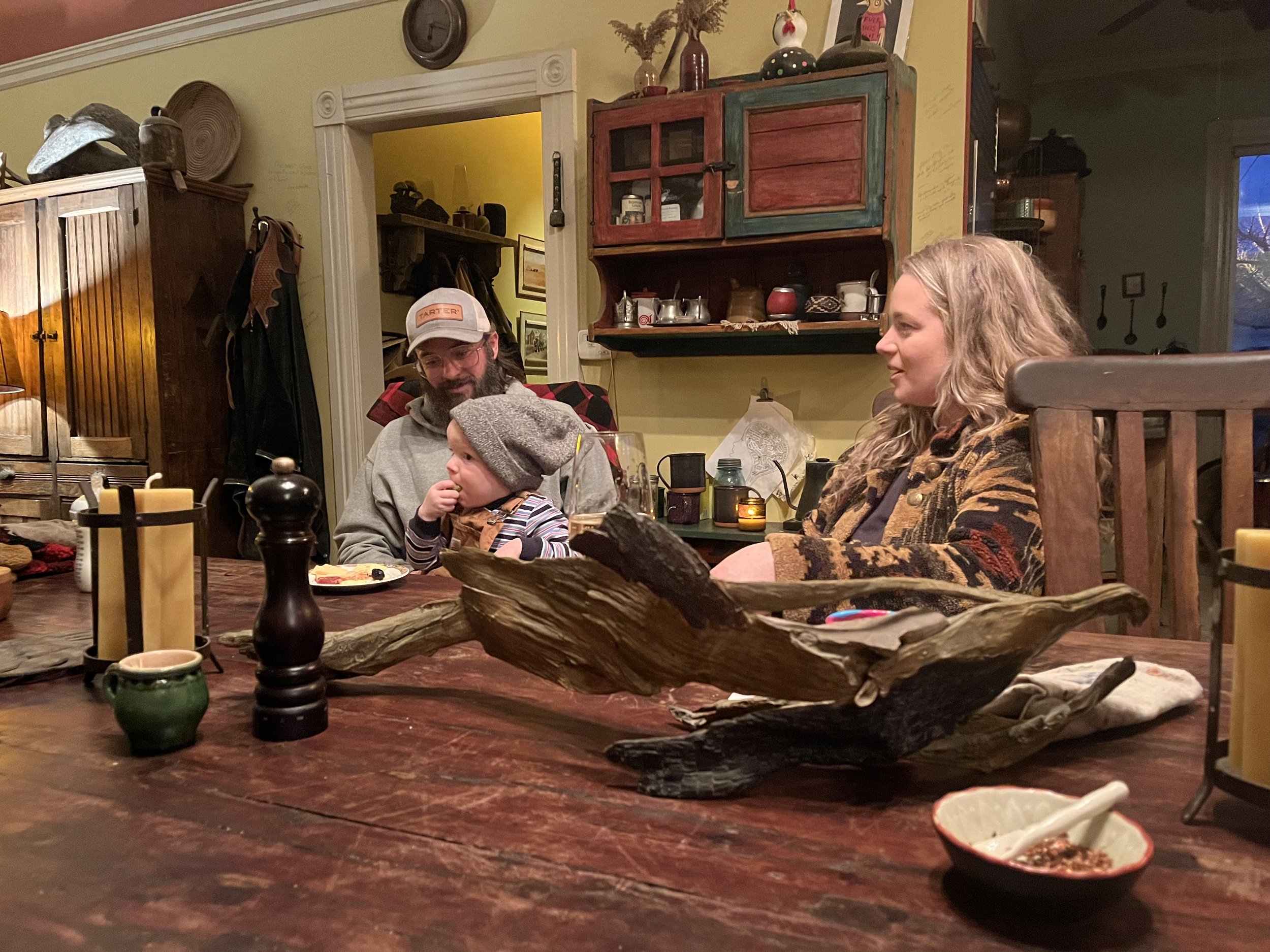The Illusion of Control
Those of us making decisions in the real world have learned not to take things literally. Words rarely do justice to what we are trying to explain. We know that people come from different geography, cultures, and economies. We need to listen for their intent when they speak, which means accepting language as a metaphor.
The most damaging thing we can do when dealing with complexity is to think we are in control. Knowing that land, people, and money are complex complicates our communication. The self-organization of complexity keeps things fluid, and we cannot get stuck in being static and literal.
Your Unique Context
One of the better enhancements of Holistic Management came when we abandoned the idea of having a holisticgoal. A goal, even if holistic, becomes a fixed point, and we can't have a fixed point when we have self-organizing going on all around us. Those of us dealing with complexity know that we are subject to the self-organization of our finances beyond our personal choices, like recessions, bank defaults, inflation, etc. We are whipped by the winds of extreme climate change, even beyond the little flood or drought on our ranch. We are confused by black-and-white interpretations of our society as we work to synergize with diversity in our quality of life statement. Our tendency to speak in black and white, the only way, and silver bullets are symptoms of our desire to control. You and I cannot control the forces of self-organization. They can only be influenced.
Everyone's context, like their fingerprint or a snowflake, is unique. Yet, unlike a fingerprint or a snowflake, our context continually changes. Our finances change as economies accumulate and distribute wealth. Our social interactions change as people define public policy, reaching for hope and protecting from fears. And our landscape changes as atmospheric rivers and parching drought challenge the well-being of the animals we use to build soil. Having a holistic context, and keeping it relevant, even in knowing that it will constantly change, brings an unfair competitive advantage for us to influence that change.
Influencing… Humbly
Changing the "word" holisticgoal to holistic context helped our minds become more nimble and recognize complex relationships reorganizing our whole. "Context" means we are maturing. This developing concept of holism allows us to step aside as complexity modifies, morphs, and mutates. So, let's say that. Change the feedback loop to read: Plan>Montor>Influence>Replan. Why humor the illusion of control?
What would that look like for the next generation of Holistic Management Decision Makers? The winds of change are constantly shifting and have shifted. The trends my age rode for 30+ years, like deflation, endangered species, and the misunderstanding of grazing and time, are waning as different currents stir. The next generation needs to reset their sails, scrap the illusion of control, and open their senses for clues on how they might influence diversity.
Generational Context
The average age of farmers working the land is 58.3 years, while the principal land owner, people owning the ground, is 66.5 years. Where is the next generation? Who will own the land that builds soil, captures the raindrop, embraces the sunlight, and generates diversity? Bill Gates, Ted Turner, China, the Mormon Church, and others in ivory towers are moving pawns to accumulate wealth. Ok, I intentionally triggered you. It's the wrong question. A better question might be, "Who will manage the land?" Still not quite right. The theme of this blog, 'How do we empower the decision makers closest to the soil surface?' directs the question. "How do we incentivize those making decisions at the soil surface?" With shared equity.
There have been and will be investors that understand their assets will be more secure if the decision maker at the soil surface has an equity stake. As our nation's economy came out of the 1930s depression, a money guy approached my grandfather to manage a ranch that he purchased in exchange for 50% ownership. That investor knew he needed equity at the soil surface. As I emerged from the 1980s farm crisis, I took in partners that provided liquidity and retained 50% ownership. In Oregon, we funded 3 miles of critical salmon river with investors that offered a path to 50% equity in the project.
The landowner doesn't give up a thing. They buy a 300 Animal Unit ranch, and the decision maker at the soil surface gains their equity stake by influencing the ecological function and building soil health. Holistic Managers know how to do that. Same land, more production, more gross profit, and more social diversity result from shared equity.
Social and economic dynamics are complex and self-organizing. We can't control that; if we try, we put people off. We all have an uncle, a grandparent, a neighbor, or simply an acquaintance approaching their twilight years and looking for a graceful way to enjoy those years better. We can influence how that self-organizes by simply suggesting your intent without being controlling. Maybe your aging aunt owns a property adjacent to you. Perhaps you suggest, "I am at a point where I am looking to expand my real estate holdings. I have been looking at properties in the $250,000 range. If you have any interest in doing something with your property, I look forward to having a visit." Then, let it settle. Even if you think you know what they want, you don't. Let them sort through the complexity as you work on other projects. Maybe you suggest that if they decide to pursue something, you would be amenable to a life estate, where they could live on the property until they die.
We have just relieved this human from fear of being forced to do something they don't want. We have opened additional pathways for self-organization to flow. If we avoid controlling and choose to influence, more conversations will follow on financing, terms, and maybe even legacy.
Finding Leverage & Making your case
You can influence the generational transfer even if you don't have a base to expand. Please sit down and make a list of properties that are not performing to their potential, a list of investors, and a list of aging landowners. Get this into your subconscious and begin having conversations. You have just influenced the self-organization of a sphere of influence, aligning equity positions of the next generation. Reread the last sentence.
Get comfortable with Ecological Outcome Verification (EOV) short-term monitoring. Get out on the land with a score sheet, and explain how and where you will improve ecological function, build soil, increase production, and slow flood and drought. State simply, "This is the land you own. When my management improves the health of this soil, my equity will grow." If we can get over the illusion of control, we will influence soil health, influence equity ownership, and influence social complexity.





